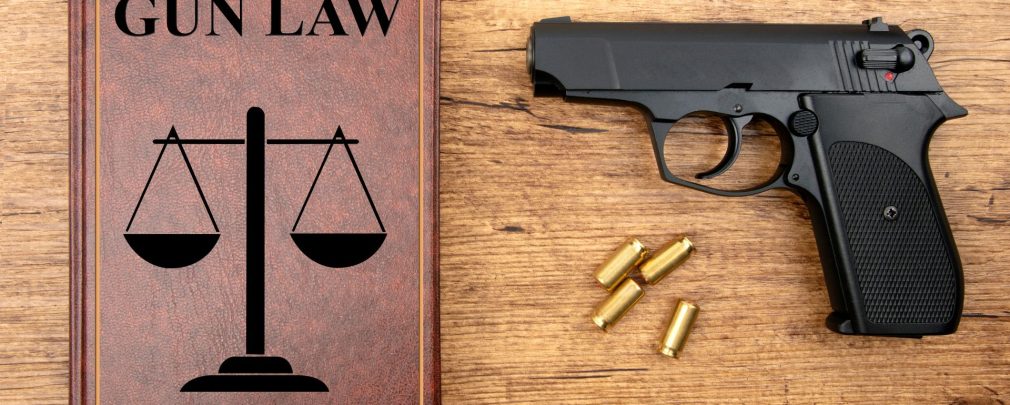Schedule A Consultation Today!
Florida Gun Laws 2024 Explained

Earlier this year, Governor DeSantis signed a law deregulating government oversight in concealed carry laws for its citizens. As of July 1st, this means that all those who were eligible to apply for or owned a permit for concealed carry can now do so without a permit. This has several implications, meaning it is important to understand what has — and has not — changed.
Permitless Concealed Carry
Florida has long been a concealed carry state. However, it is no longer requiring those who wish to carry a concealed weapon to obtain a permit to do so. This does not make anyone who was previously ineligible to obtain and carry a firearm now legally able — the eligibility requirements have not changed. Instead, this means that if you meet the eligibility requirements that would have allowed you to apply for a permit, you are legally able to conceal carry even without obtaining or holding a permit.
You can, if desired, still obtain a permit. In fact, there are certain situations in which it would be beneficial, such as traveling across state lines. Otherwise, to meet the requirements, you must:
- Be a legal adult
- Not have committed any felonies
- Not have any physical ailment or condition that would hinder the safe use of the firearm
- Meet all other requirements as outlined in Florida law HB 543.
Difference Between Open Carry and Concealed Carry
Much of the confusion and misinformation regarding the new law revolves around an understanding — or lack of understanding — of the difference between open carry and concealed carry. In Florida, state law defines the two as such:
- Open carry is publicly displaying or carrying a firearm on one’s body in the view of others. In open carry states, owners are able to properly holster a gun on their body in a way that is visible to others.
- Concealed carry is the practice of carrying a weapon, such as a firearm, in public in a concealed or unseen manner.
Both policies allow the citizen to carry a gun in public. The difference is whether the gun is allowed to be carried in a way that can be seen by others. There are some exemptions, however, such as place and activity engaged in that would alter these permissions. For example, you may open carry in Florida if:
- You are in a private residence that you own, whether that is a home or a business. This does not allow your guests to open carry or possess your firearm, even with permission.
- You are engaged in an activity that calls for the use of a firearm, such as hunting, shooting at a range, a shooting competition, camping, or fishing.
- The situation reasonably calls for its use, such as self-defense.
The following places have restrictions that make it an illegal act to carry a firearm, with or without a concealed carry permit:
- Police stations
- Jails and prisons
- Courthouses
- Polling places
- Government body meeting places
- Legislature
- Schools, universities, colleges, and school administration buildings
- Non-firearm-related athletic events of any kind
- Establishments that are licensed to sell alcohol for consumption
- Airports
- Any other place in which carrying would be prohibited by federal law
It should be noted that citizens are not permitted to carry in places of nuisance, which is a place where illegal activity occurs. Someone found carrying in a place of illegal activity will be liable for further criminal actions.
Additionally, while restaurants, for example, are licensed to serve alcohol, they are not places in which it is prohibited to conceal carry since serving alcohol is not the primary function of the establishment. Sitting at the bar, however, would constitute a prohibited place.
FAQs
Q: Can I Carry a Gun Without a Permit in Florida?
A: As of July 1st, 2023, Florida citizens are permitted to carry a gun without obtaining a permit. However, the eligibility requirements for obtaining the permit must still be met to lawfully carry. This means that while a person does not need to complete the process of obtaining a permit or license to carry a gun, they must still satisfy all the necessary requirements that would make them eligible for the permit; otherwise, carrying a gun would be unlawful.
Q: Can I Carry a Loaded Gun in My Car in Florida?
A: Under Florida’s new gun law, you can carry a loaded gun in your car if you meet the legal requirements for concealed carry. This means you must be at least 21 years old, have a valid identification, and have no physical limitation that would prevent safe use. Florida allows those over 18 to keep a loaded gun in a private vehicle, provided it is in a secure case and is away from view.
Q: Why Is Open Carry Illegal in Florida?
A: Despite the recent changes to concealed carry laws in Florida, it is still illegal to openly carry a firearm in a public place. Some activities permit you to open carry; for instance, hunting, camping, fishing, range shooting, and shooting competitions are legally valid reasons for openly carrying. If another legally valid reason, such as self-defense, is present, then displaying your gun publicly would be legally acceptable. This is because Florida is a non-permissive open-carry state.
Q: What Is the New Gun Carry Law in Florida?
A: The new gun carry law in Florida now permits a citizen to lawfully carry a gun without a permit, provided they would otherwise meet all eligibility requirements for obtaining a permit. This includes being 21 years or older, being a U.S. citizen and resident, having a government ID, not having any physical limitations that would hinder the safe handling of the gun, and not otherwise being ineligible to carry.
Speak With a Defense Lawyer for Weapons Charges
Florida’s new deregulations open the door to more gun freedoms in the future. However, the law can still make it tedious and difficult to know or understand some of its permissive nuances. For this reason, it is important to speak with a qualified and experienced firearms defense lawyer if you’ve been accused of any crime involving weapons charges. To learn more or to secure skilled representation, contact the Law Offices of Nellie L. King.


